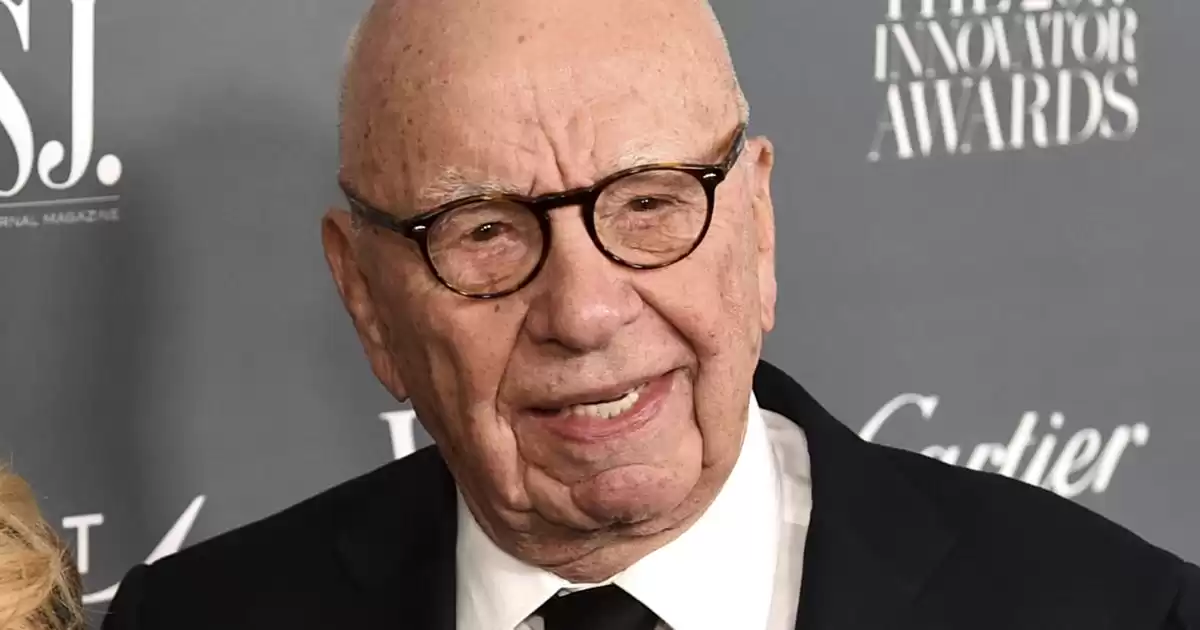Hero or Villain? Rupert Murdoch's Exit Stirs Strong Feelings in Britain, Upending the Media
Rupert Murdoch, the media mogul who transformed British media, has stepped down as leader of Fox and News Corp.
Rupert Murdoch, the media mogul who made a significant impact on the British media landscape, has announced his decision to step down as the leader of his companies Fox and News Corp. The 92-year-old tycoon has handed control over to his son Lachlan, sparking both praise and criticism from journalists and politicians in the UK.
Murdoch's ownership of The Times of London has been hailed as trailblazing by the newspaper itself, while former Prime Minister Boris Johnson credits him with promoting global free media essential for democracy and progress. However, critics view Murdoch as an unaccountable and malevolent presence in British society. Nathan Sparkes of Hacked Off, a press reform group, accuses Murdoch of presiding over a company that engaged in widespread illegality and subsequent cover-ups. Former Labour Party leader Jeremy Corbyn goes as far as to claim that Murdoch's outlets have poisoned global democracy and spread disinformation on a massive scale.
Murdoch's journey in the British media began in 1969 when he purchased the struggling Sunday newspaper, the News of the World, followed by the acquisition of The Sun. As a hands-on owner, Murdoch revitalized the traditional and class-oriented newspaper scene by introducing elements of sports, celebrity, prize giveaways, and sex. The Sun's infamous topless "Page 3 girls" became a symbol of the paper's provocative nature.
In a 1989 interview, Murdoch attributed his success to his Australian roots, claiming that Australians brought greater determination and energy to the UK, unburdened by respect for the old world's rules. Murdoch's tabloids were known for their populist, pomposity-puncturing, and patriotic style. While supporters admired their flair, critics condemned their controversial headlines, such as "Up yours, Delors" directed at then-European Commission President Jacques Delors, and "Gotcha!" in response to the sinking of an Argentine cruiser during the Falklands War.
Politicians from across the political spectrum courted and feared Murdoch, who expanded his media empire by acquiring The Times and Sunday Times in 1981. As an arch-conservative who despised the establishment, Murdoch found a kindred spirit in Conservative leader Margaret Thatcher. His support for Thatcher's Conservative Party during the 1980s, driven by their shared antipathy towards powerful trade unions, played a significant role in her political success. The Sun even claimed credit for Thatcher's unexpected victory in the 1992 election with the headline "It's the Sun wot won it."
Murdoch's influence continued into the New Labour era when Tony Blair secured his backing, leading to a landslide victory for the Labour Party in 1997. While Blair denied making any explicit or implicit deals with Murdoch, skeptics remained unconvinced.
The phone-hacking scandal in 2011 exposed the unethical practices of Murdoch's media empire. News of the World employees were found to have eavesdropped on the phones of celebrities, politicians, royals, and even a murder victim. Murdoch was forced to shut down the newspaper, and several executives faced trial, with former editor Andy Coulson ultimately serving time in prison. News Corp., Murdoch's company, paid substantial compensation to victims, including those targeted by The Sun. Currently, Prince Harry is among the celebrities suing The Sun for alleged hacking.
While Murdoch has condemned the phone hacking and other media misdeeds, he claims to have been unaware of the extent of the wrongdoing, blaming a few rogue staff members.
Recognizing the changing media landscape in the 1980s, Murdoch launched satellite broadcaster Sky Television in 1989, despite initial difficulties. The company's fortunes turned around when Murdoch secured the rights to broadcast live Premier League soccer matches in 1992. This move propelled Sky, later known as BSkyB, to become a dominant force in British broadcasting.
However, the phone-hacking scandal forced Murdoch to abandon his bid for full control of Sky, eventually selling his stake to Comcast in 2018. Although he still owns The Times, Sunday Times, Sun newspapers, and Talk TV, industry experts predict that Lachlan Murdoch, who has less interest in newspapers, may eventually divest the British papers.
Despite stepping down from his leadership roles, Rupert Murdoch remains a powerful figure in British society. His summer party in June attracted influential guests, including Prime Minister Rishi Sunak, members of his Cabinet, and opposition Labour Party leader Keir Starmer.
It is worth noting that the Associated Press's climate and environmental coverage receives funding from the Quadrivium foundation, founded by James and Kathryn Murdoch, who are not mentioned in this article. The AP is solely responsible for all content.











Comments on Hero or Villain? Rupert Murdoch's Exit Stirs Strong Feelings in Britain, Upending the Media